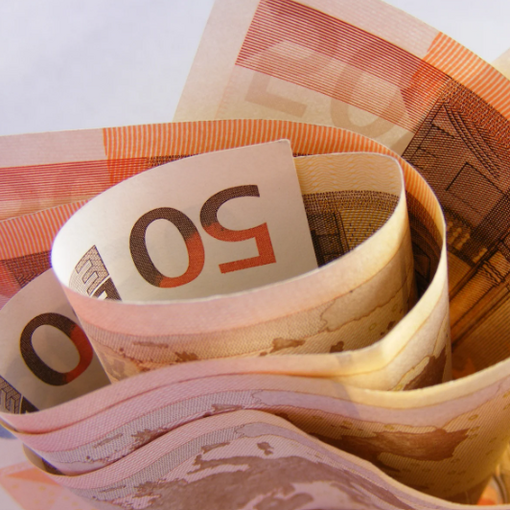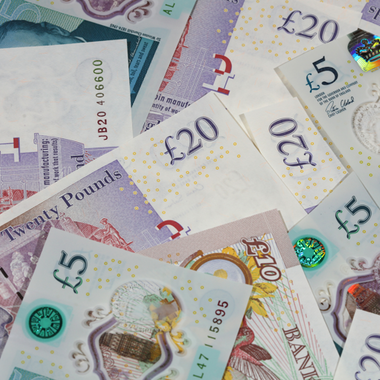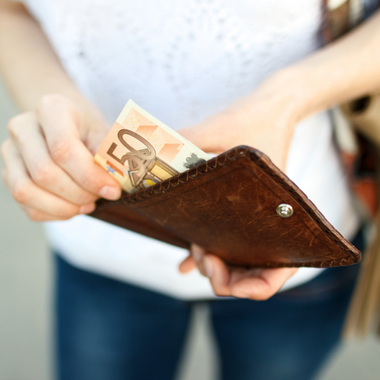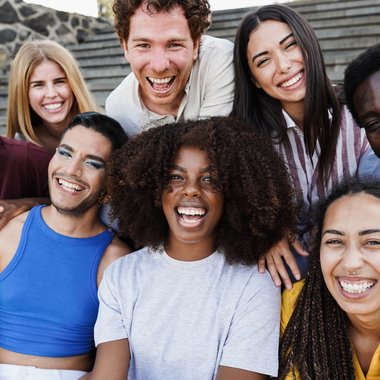
- Six minutes read
Why protecting access to cash is critical to a fair and resilient society
For millions of people across Europe and the U.S., cash is the only way they can buy essentials and participate in the mainstream economy. But protecting access to cash benefits everyone — including consumers who are willing and able to pay with cashless methods.
It's getting harder to pay with cash.
In a 2020 survey of U.K. consumers, one in three respondents said they'd had cash payments refused.
Similarly, around 18% of U.S. businesses have gone cash-free. And "no cash accepted" signs have become so commonplace across the EU that a number of organizations have called on the European Commission to make refusing cash payments illegal.
At the same time, ATMs are disappearing — and so is easy and convenient access to cash. Between 2016 and 2021, Europe's ATM footprint shrunk from 420,000 to 377,000 — a 10% decrease. The U.S. ATM network shrunk 3% just in the past 2 years, while the U.K.'s network shrunk by a massive 25% between 2018 and 2022.
For those of us who are used to tapping our cards — or, increasingly, our phones — to pay, these developments may have passed largely unnoticed.
But, while we might not think much about it, a world in which it's ever more difficult or no longer possible to pay in cash has consequences that could be hugely damaging to society as a whole.
The unintended effects of cashlessness
The single biggest problem with a completely cashless society is that those who are most vulnerable are at risk of being excluded further from the mainstream economy.
The vast majority of cashless payment methods — debit cards, credit cards, online wallets, and mobile wallets — require access to banking facilities. But, despite several initiatives in both Europe and the U.S., a significant number of people are still unbanked or underbanked.
The authors of an independent report on the consequences of cashlessness in the U.K. observe that: "The biggest indicator of cash dependence... is income. The poorer you are, the less likely you are to have access..."
Other studies have reached a similar conclusion. According to the World Bank Global Findex Survey 2021, for instance, those on low incomes, especially young people, women, and minorities, are the most likely to be unbanked or underbanked.
As a result, cashlessness risks creating a more unjust and unequal society. One where those already struggling won't be able to access essential services — including healthcare — not because they can't afford them, but simply because they don't have an accepted payment method.
A single point of failure
While the risks of a cashless society are greatest for those who don't have the means and opportunity to go cash-free, there are worrying downsides even for people who are actively welcoming it.
To begin with, where cash transactions are inherently private, cashless payments always leave a paper trail. And this can give rise to ethically problematic situations.
Some banks lowered a customer's credit card limit not because of their overspending, but simply because they didn't like some of the outlets in which customers were shopping at.
Similarly, automated credit scoring, which uses credit card data and other financial information to carry out risk assessments, has made it impossible for 49 million Americans to obtain a mortgage, buy insurance, or get a smartphone.
More importantly, cashless payments depend on technology. And if cash is no longer accepted and there's a major technology outage, it would be impossible for commerce to continue.
This might seem like the stuff of a Hollywood blockbuster, but the risk is very real. In 2021, for instance, snowstorm Uri knocked out a significant portion of Texas' power grid. With most of the financial infrastructure offline, cash was the only way consumers could pay for essentials.
Cash's place in the digital world
The risks of a cashless society haven't escaped governments' and regulators' notice.
In the U.S., a growing number of states, cities, and local administrations are enacting legislation that makes it illegal for businesses to refuse cash payments. And a bill dubbed the Payment Choice Act, which is currently in front of the U.S. Senate, would enshrine merchants' obligation to accept cash payments into federal law.
The European Central Bank has also committed to ensuring people can continue accessing cash.
And the European Commission issued a recommendation which states EU merchants and entities who provide essential services must accept cash unless they have a valid reason not to, though this isn’t a legal obligation.
But if ensuring people can continue paying in cash offline moving forward is undoubtedly a step in the right direction, it's only one piece of the puzzle. Just as important, it's time to make it easy for consumers to pay with cash online.
Commerce is evolving, and so must cash
Research suggests that, for every 1% growth in eCommerce, around 8,000 bricks-and-mortar stores close. Given that eCommerce is growing at a rate of 14.55% a year, that's 349,200 physical stores which could be closing between now and 2025.
The upshot is that, even with pro-cash legislation in place, cash-reliant consumers still risk being economically excluded. The proliferation of eCommerce means being unable to shop online could, in time, have serious repercussions like limited access to groceries and other essentials.
Accepting eCash could solve this issue.
Customers who can't pay digitally because they're unbanked or underbanked — or who won't do so due to privacy concerns — can choose eCash at the online checkout, download a barcode, and pay at one of thousands of payment locations.
Crucially, online merchants, brick-and-mortar stores, and even banks and neobanks stand to benefit by accepting eCash.
If you're a merchant, eCash enables you to reach a new customer segment. There's also no risk of fraud or chargebacks, because there's no need to share financial details online.
If you're a brick-and-mortar store, acting as an eCash payment point can bring in additional trade from customers coming in to complete payments or purchase a prepaid credit for online payments.
And if you're a bank or a neobank, eCash payment points can double as virtual bank branches, where customers can deposit or withdraw cash and you can offer valuable services such as financial education without the overhead of a branch and ATM network.
For consumers to have real choice, cash payments must be an option
Consumers may be paying in cash less often, but that doesn't mean they're happy for it to disappear from their lives. On the contrary, our latest consumer research found that 70% would be worried if they couldn't access it anymore.
Cash payments are private. They're secure. And they keep commerce going when technology lets us down.
And, most importantly, they're a lifeline for the underprivileged and the vulnerable — people that we, as a society, have a moral duty to ensure aren't left behind.
As U.S. Rep. Donald Payne Jr, the congressman behind the Payment Choice Act, notes: "We can't reject [people's] needs because they don't have a credit card or Apple Pay."
If we want to have a truly fair, inclusive, and resilient society, cash needs to remain part of the payments mix.




